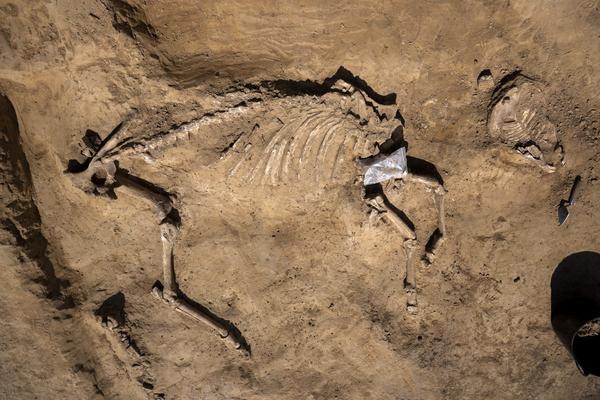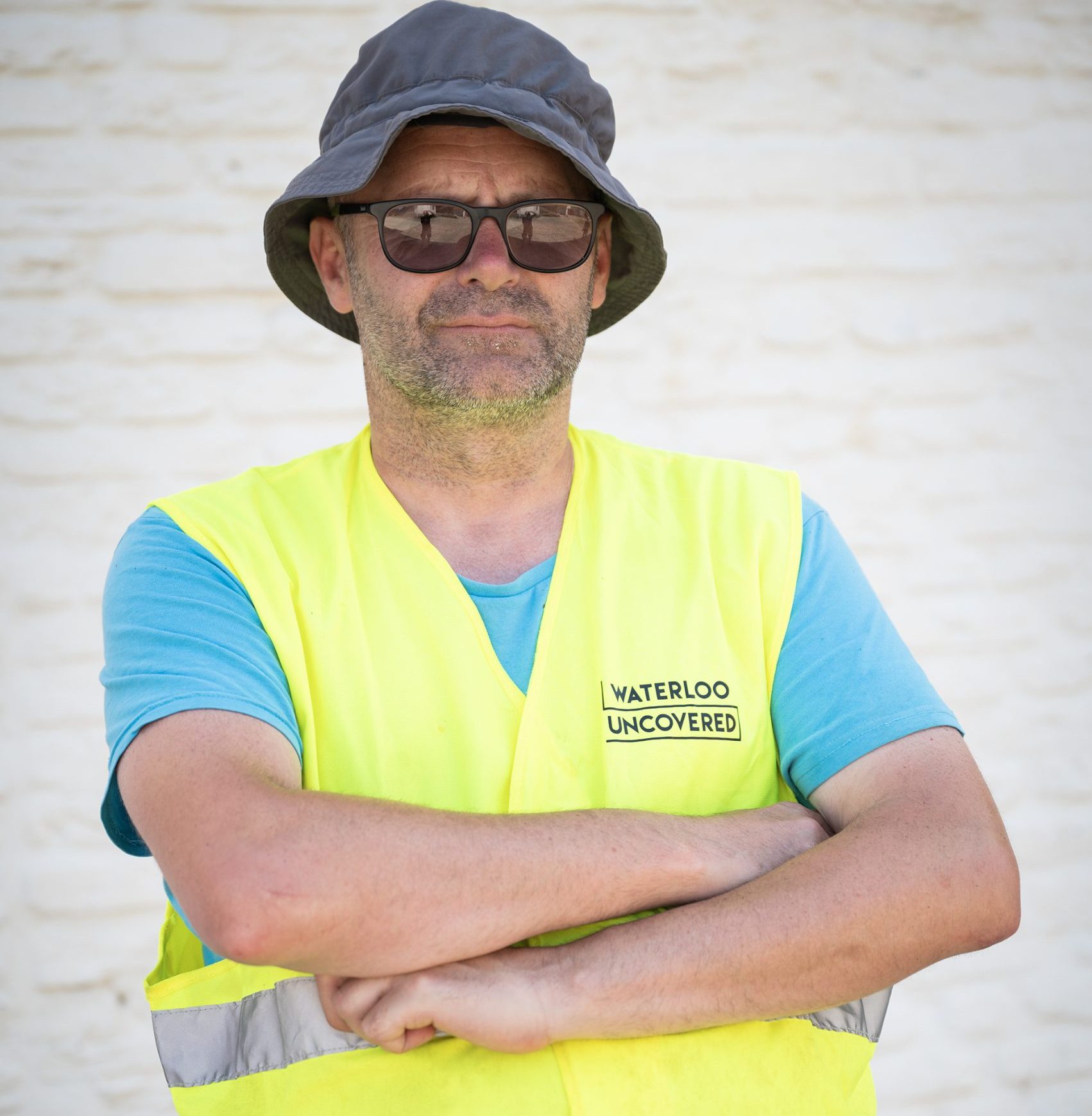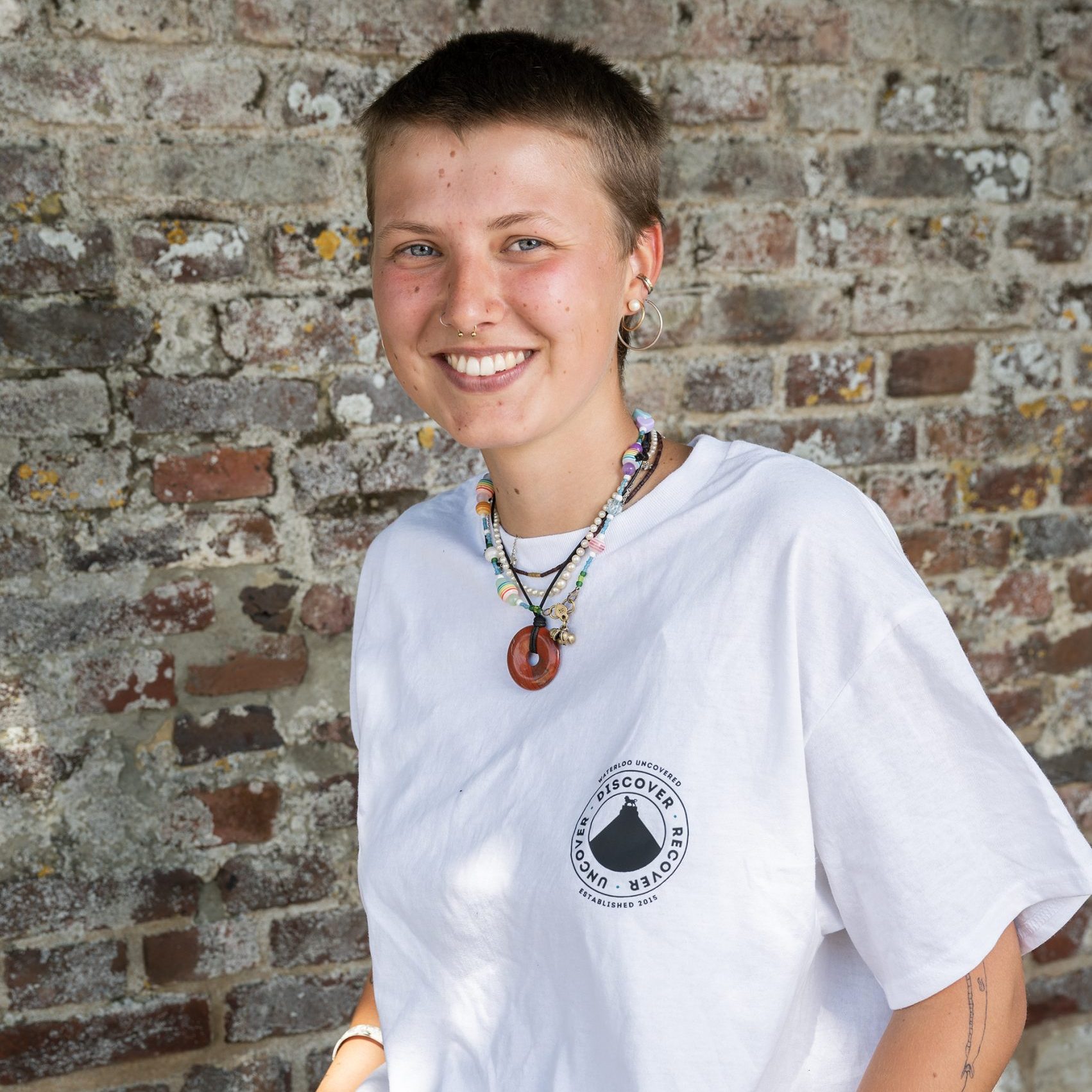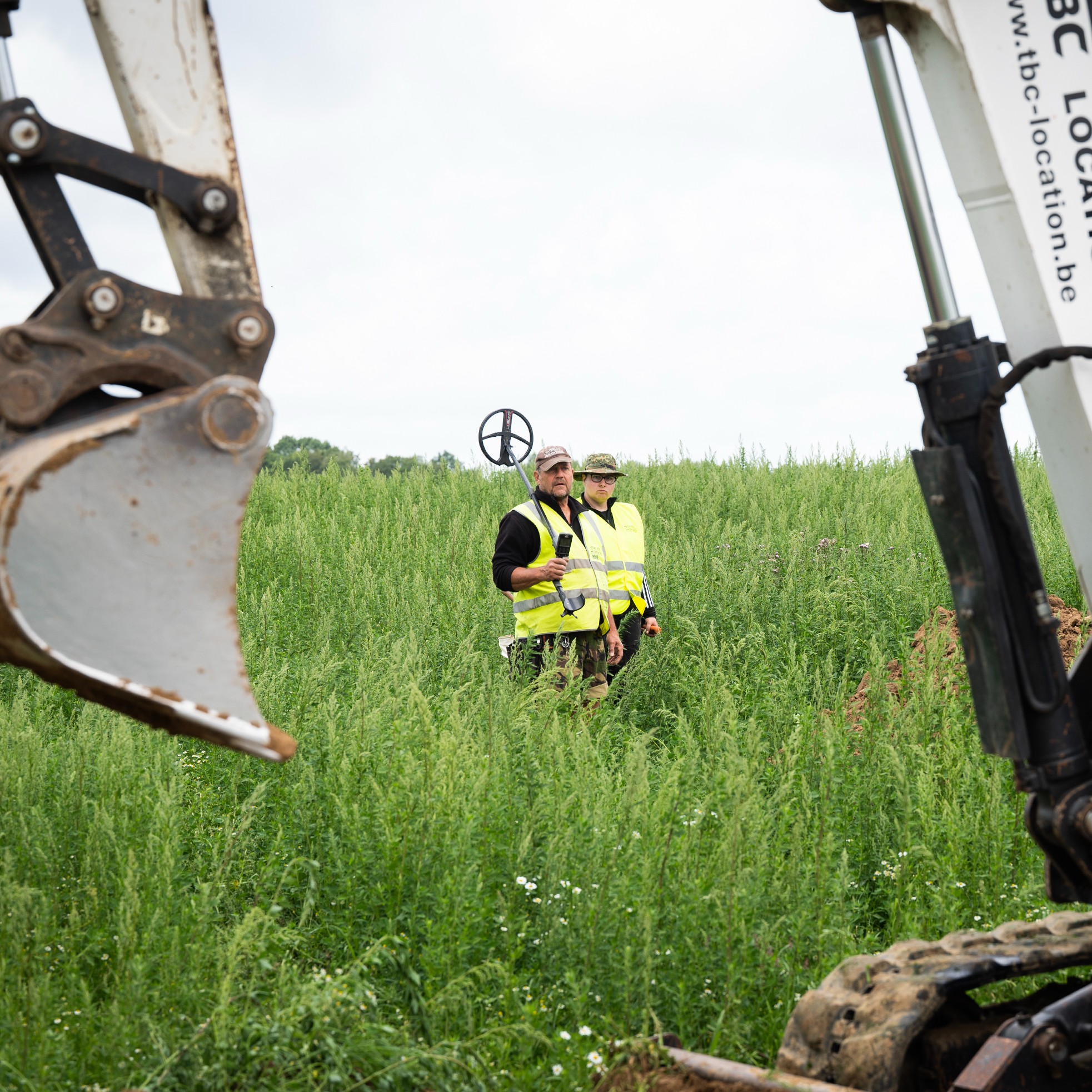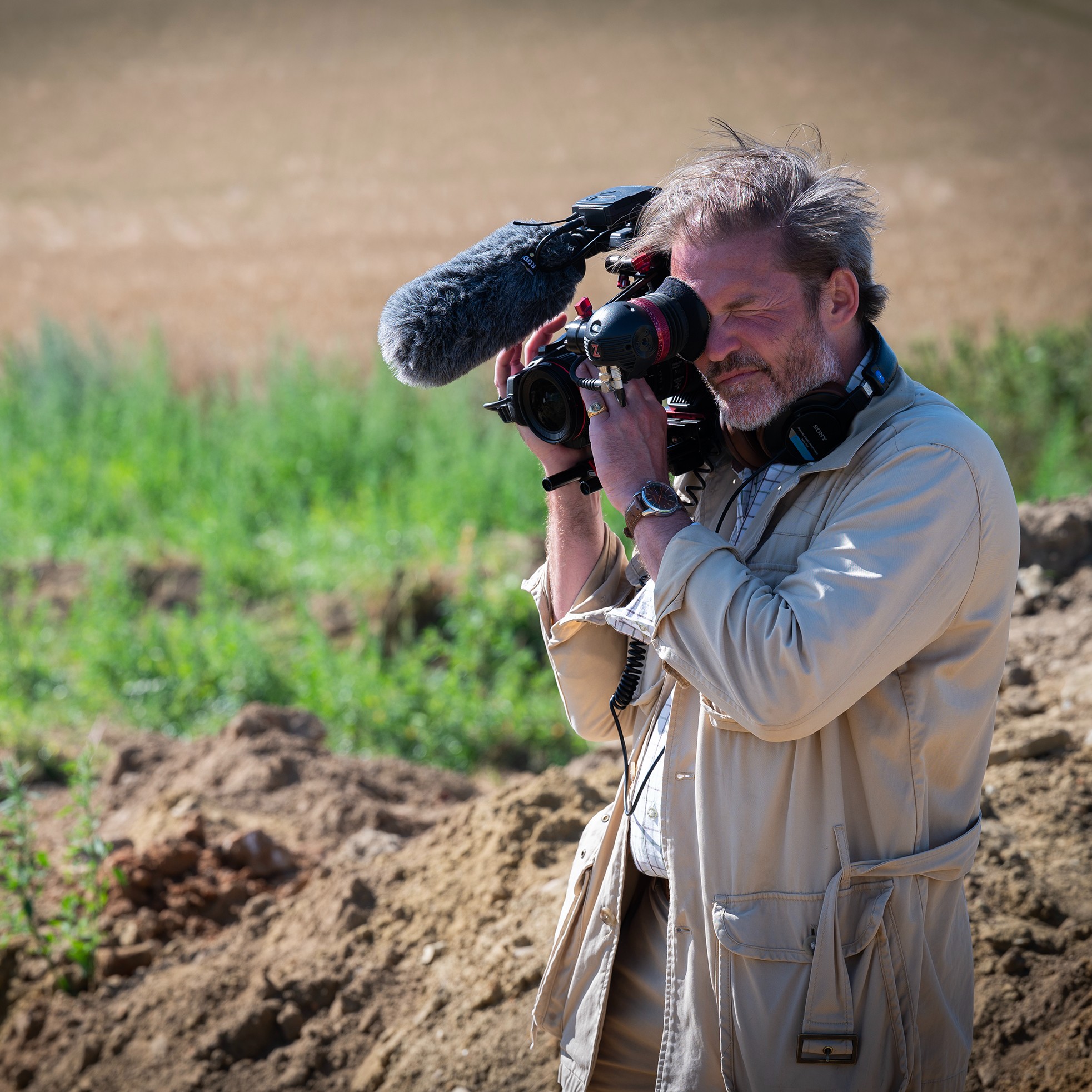We are starting to understand what happened inside the Northern Gate. Unfortunately, sometimes we are getting a better picture of what happened in that place around 2015 – not 1815. Tomorrow, we will dig to a deeper layer. One of our team members did find an ‘antique’ medicine bottle from the early 20th century, which read ‘external use only’.

The rarely photographed supervisor James Earley, hard at work
The Northern Gate or the “Renovation Excavation”

Archaeologist Phil Harding giving directions at the Northern Gate
Under supervision of archaeologists Phil Harding, Eva Collignon, and Emily Glass, the teams are making great progress in the trenches inside the Northern Gate. According to Phil, we are starting to find the foundations and rubble of a barn that burnt down during the Battle. It was demolished shortly afterwards, when the farmers found the building too unstable to continue its use. Phil says that the dimensions of the wall show us that the barn might be bigger than originally thought and was likely to look very similar to the barn now standing opposite the trenches.
During the first excavations, it became clear that the area inside the Northern Gate was used as a dumping ground for the rubble produced by the renovations of Château d’Hougoumont circa 2015. The builders most likely spread the rubble and covered them in a layer of woodchips, upon which has now grown a grassy field. Emily tells us that if it hadn’t been for our excavations, we probably would not have known that some of the rubble of the renovations had ended up here as it is not visible to passers-by.

Inspecting what might be a wall of the barn that burned down during the Battle
Excavations are showing that the original barn actually had a slate roof, which does not correspond with the current tiles covering the existing barn. This is a small example of how archaeology can disprove historical ‘facts’ – during the renovation, part of Château d’Hougoumont’s buildings were covered in tiles, which are supposed to be a recreation of the originals.
Personally, Phil thinks that the nearby Château Papelotte could give us an idea of what the Château d’Hougoumont must have looked and felt like during the early 19th century: “There are farm animals roaming around, the ground is covered in straw and dung piles, and you cannot hear the traffic inside the walls. You could almost imagine a soldier in a red uniform (or a Dutch soldier in blue) coming around the corner.”

Uncovering some ‘finds’ (most likely modern litter)
An Extraordinary Coincidence
Recently, two of our team members found out that they might have met before, in 1974. In that year, Veteran Coldstream Guardsman Malcolm Iliffe was stationed at the British base on Cyprus. At the time, tensions between the Greek and Turkish communities precipitated an invasion of the island by Turkish forces. Malcolm commanded a British patrol that took the families of UK servicemen from British bases on the island to safety on buses. On one of these buses, there was our Welfare Officer David Ulke, then an eight-year old schoolboy. This year, more than 40 years later, they met again in the excavations at Waterloo.

David Ulke and Malcolm Iliffe
Keep up with our Finds
Would you like to keep up with our finds as we identify them, and review last year’s finds? Do you think you could lend us a hand by giving a suggestion to identify what our find might be? Then please visit our ARK Archives by LP Archaeology: https://www.lparchaeology.com/waterloouncovered/data_view.php. Start exploring now!
Tours around Hougoumont
Are you in or around Waterloo, come visit us and enjoy one of the guided tours provided on site! Our guides Dan, Philippe and Jaqcues speak English, French, German and Dutch, and you can book a 1 to 3 hour tour with them at www.guidestours.org

